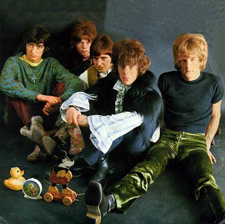 The Electric Prunes were one of the first acts to mix rock and religion, but there was more to come.
The Electric Prunes were one of the first acts to mix rock and religion, but there was more to come.
In 1969, the British rock quintet Spooky Tooth teamed with French electronic music pioneer Pierre Henry for Ceremony (An Electronic Mass).
The band was rooted in blues-based rock, with two well-received albums to their credit, but change was in the air. Progressive rock was in its formative stage – Vanilla Fudge and the Nice were already taking on the classics – and the same year brought debut releases from Yes, Genesis and King Crimson.
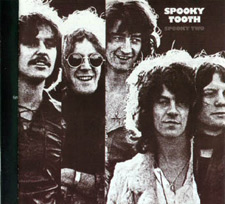 With the future up for grabs, the group took on the daunting task of mixing three wholly disparate fields: rock ‘n’ roll, musique concrète – a relatively new, almost avant-garde form which electronically modified sounds to a radical degree – and the Catholic Mass.
With the future up for grabs, the group took on the daunting task of mixing three wholly disparate fields: rock ‘n’ roll, musique concrète – a relatively new, almost avant-garde form which electronically modified sounds to a radical degree – and the Catholic Mass.
It seemed like a good idea at the time – and it’s certainly of its time; yet even considering the openness of the era, this was definitely one of the more outside releases of the year.
The half dozen songs – all based around the concept of ‘An Electronic Mass’ – were written by Gary Wright, the sole American member of the group.
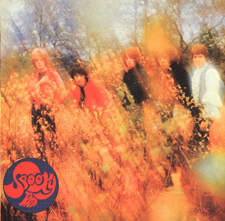 Wright had a longstanding interest in celestial matters, and would eventually embrace the teachings of the Indian yogi Paramahansa Yoganada, attaining fame – and hit records – with ‘Dream Weaver’ and other songs informed by his beliefs during the latter half of the seventies.
Wright had a longstanding interest in celestial matters, and would eventually embrace the teachings of the Indian yogi Paramahansa Yoganada, attaining fame – and hit records – with ‘Dream Weaver’ and other songs informed by his beliefs during the latter half of the seventies.
Here, however, the content is strictly biblical.
Jesus Christ Superstar and Godspell would bring a modernized, pop-friendly gospel message soon after, generating hits like ‘I Don’t Know How To Love Him’ and ‘Day By Day’ that would be covered by literally hundreds of artists.
Ceremony was never going to go down that road. It’s hardly a feel-good, Up With People-style approach.
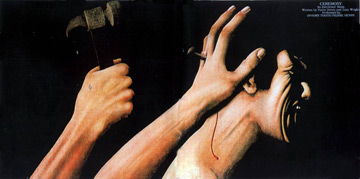 Outside of opener ‘Have Mercy,’ – with its plaintive plea: ‘Lord have mercy/Christ have mercy’ – it’s all single word titles; ‘Jubilation,’ Confession,’ Prayer,’[a/k/a ‘The Lord’s Prayer],’ ‘Offering’ and ‘Hosanna.’
Outside of opener ‘Have Mercy,’ – with its plaintive plea: ‘Lord have mercy/Christ have mercy’ – it’s all single word titles; ‘Jubilation,’ Confession,’ Prayer,’[a/k/a ‘The Lord’s Prayer],’ ‘Offering’ and ‘Hosanna.’
The lyrics are frequently dark, but theologically straight down the line, taken directly from a mass, and not modernized or updated in any way.
‘Jubilation’ is typical; ‘I believe in God almighty father/maker of heaven and earth and all things/I believe in Christ the begotten son/born of the father before time began…”
Reverent and atmospheric, with a solid rock and blues base, there was every reason to believe the album would boost the group into the upper echelons of rock’s big leagues. uring with a band comprised entirely – outside of the drummer – of synth players.
At least, the album as it was delivered to the record company by the band. Then, things went sideways.
The tapes were handed over to Henry, who proceeded to add electronic noise, sound effects, blips, gurgles, and chants, radically altering the group’s original recordings in the process.
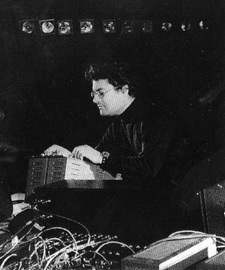 It was collaboration only in the sketchiest sense. At times it sounds as if the band was an afterthought; and it could be argued that’s exacting the case: Henry never even met with the group before contributing his radical treatments.
It was collaboration only in the sketchiest sense. At times it sounds as if the band was an afterthought; and it could be argued that’s exacting the case: Henry never even met with the group before contributing his radical treatments.
More’s the pity. A wild guitar solo by Luther Grosvenor that closes things out comes closest to group’s earlier repertoire, and leaves one wishing there was a separate mix – much like the David Axelrod/Electric Prunes deluxe release that offers the albums with and without vocals – of the band alone, before Henry took over.
From a musical standpoint, there’s no questioning Axelrod’s influence on the Prunes was entirely positive. In the case of Henry and Spooky Tooth, it could be argued that in the case of the final results, the reverse was true.
The band was furious. They had been on an upward trajectory until then, but after reviews started coming in – most of which were extremely negative – Cermony failed to equal previous album sales.
Wright became frustrated to the point of leaving the group.
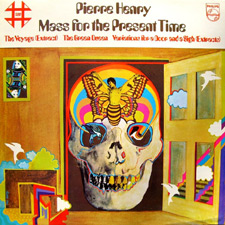 There was one bastion of positive press; in France, Henry was already well respected composer – having pioneered work in the musique concrète form, and scored for modern ballet – the work was greeted with reverence.
There was one bastion of positive press; in France, Henry was already well respected composer – having pioneered work in the musique concrète form, and scored for modern ballet – the work was greeted with reverence.
Considering its reputation, Ceremony is hardly the disaster some describe it as. Ambitious, gothic, and utterly original, at the very least, it’s a compelling work.
The years have been kind, and it could be argued that it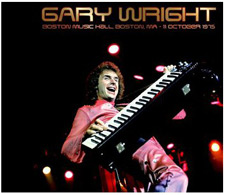 was simply before its time; the work has influenced – and been echoed – by experimental groups over the subsequent decades, from Soft Machine and Roxy Music to current acts like Moby and Radiohead.
was simply before its time; the work has influenced – and been echoed – by experimental groups over the subsequent decades, from Soft Machine and Roxy Music to current acts like Moby and Radiohead.
Wright would return to Spooky Tooth in 1973, before embarking on a successful solo career. While he would never again record under such peculiar circumstances, he was hardly a traditionalist; in the 70s, he would pioneer the use of synthesizers in the pop format, when he toured with a band comprised entirely – outside of the drummer – of synth players.
Ceremony was relegated to the delete bins almost as soon as it was released. After decades in obscurity – original copies are almost impossible to locate – Esoteric/Cherry Red have taken great care to present the album in the best possible light. A pristine transfer, period reviews and photos show serious attention to detail – and full marks to the label for employing what was available – but it would still be nice to hear those tapes before Mr. Henry got hold of them.
See also Mass was the first ‘Christian rock’ album
© John Cody 2010